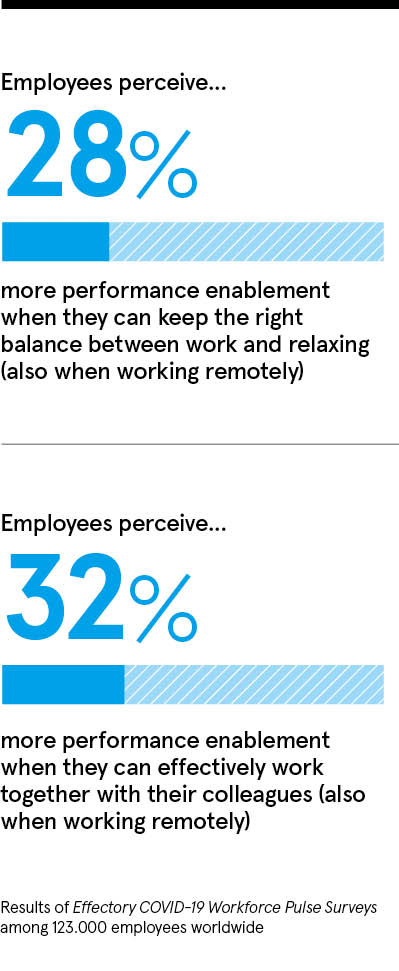Let’s not pretend this is going to be easy. The past few months have been difficult on a range of levels. But now the world is opening up for business again, what can you do to ensure your employees are motivated and energised to capture the different opportunities that lie ahead?
It’s critical to understand the different ways in which staff might be feeling the challenge, says Arjen Swank, senior employee engagement specialist at Effectory, Europe’s leading provider of employee listening solutions.
Some will have been working flat out, perhaps taking on extra work to cover for furloughed colleagues. Others will have had months of inactivity, potentially dealing with illness or even death. Some will be desperate to get back to work. Others may have learnt to enjoy the lack of nine to five and be returning in a very different frame of mind.
If your company has had to make redundancies, people may be worried about their own future and feeling insecure and unengaged.
Leadership’s role
Swank believes it is the job of a leader to refocus all these disparate responses, bringing people together into a team and creating a clear vision so everyone is contributing to the same end-goal. “This is a moment to reset corporate objectives and rebuild trust,” he says.
Agile strategies
Employee listening surveys, carried out by Effectory for global clients and with responses numbering more than 120,000, show companies are focusing less on long-term strategies at the moment; the horizon is one to two years, instead of the next decade. The coronavirus pandemic has brought to the fore the need to be flexible and agile, a mindset much needed in employees as well as employers.
Employee listening
Don’t ignore your staff if you are reformulating corporate strategies, says Swank. Employees are on the frontline of customer service; they see at first hand how your customers are feeling and can monitor what could be very rapid changes in sentiment. If you want a snapshot of customer attitudes, listening to your staff could be the quickest way.
“Staff are also ambassadors for their company,” he adds. If they know they will be listened to, they will be more likely to ask for and feedback comments from customers: valuable data for an agile organisation.
Remember that the way your organisation interacts with employees says a good deal about corporate culture. Staff who are stressed and apprehensive need to feel safe and secure if they are to re-engage with corporate goals, and this may be best achieved through smaller teams and local leaders who know individuals personally.

Swank says: “Informal, collaborative leadership will help develop the kind of ‘all in it together’ mentality that ensures a high level of trust.”
Trust works both ways. The past few months have shown that many of us can achieve as much or more by working at home; offering staff the opportunity to re-engineer their work-home balance could do a great deal to help engage those who are struggling with issues such as childcare. Trusting staff with the autonomy to make decisions that best suit them, as well as the company, can lead to a high level of motivation.
But for such a shift to be sustainable, it needs a corporate culture that allows for disparate working hours; staff may be putting in the hours at times outside the traditional working day.
Now is the time to engage with the brightest minds in your company. “Organisations will need to innovate faster than their peers and you will be missing out unless tapping into the creativity of your staff,” says Swank.
To make sure you hear all voices and not just those who shout the loudest, you need a level of objectivity, without the emotion that can come from stressed people in a fast-moving situation.
Questions need to be well thought through to prevent a tsunami of negativity; it’s human nature to spot the downsides before the upsides. Responses need to be analysed and followed up, with the outcome being a clear, practical action plan.
Only then will your listening culture ensure the organisation has the flexible and agile mindset needed to cope with whatever the future holds.
For more information please visit www.effectory.com
Leadership’s role
Agile strategies
Employee listening

